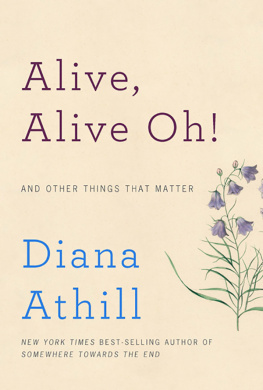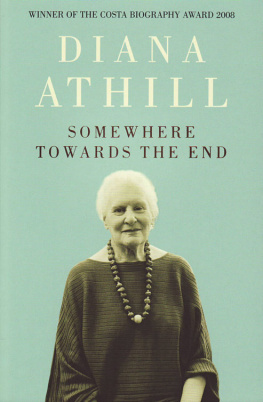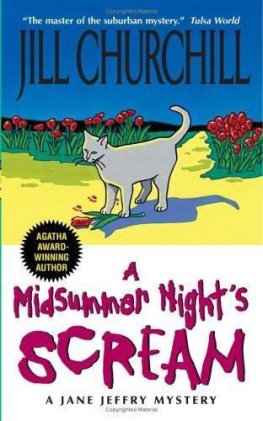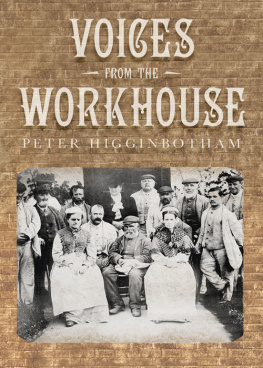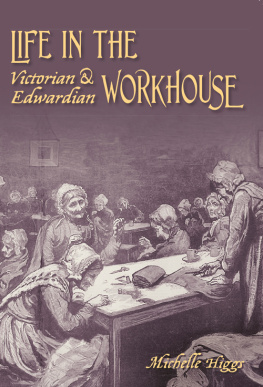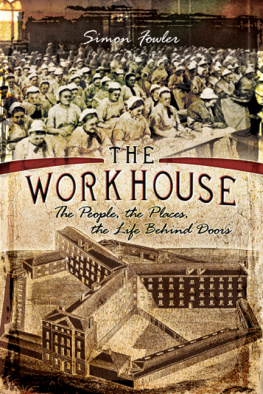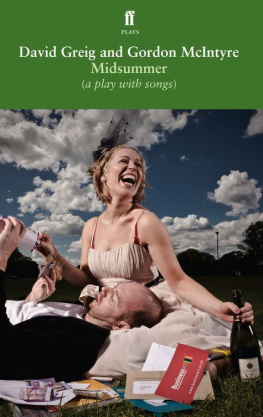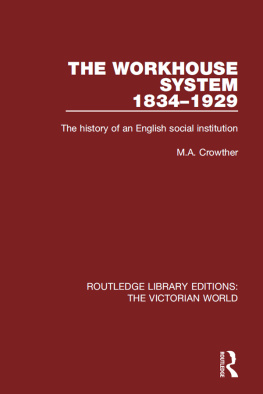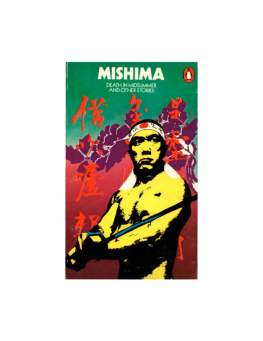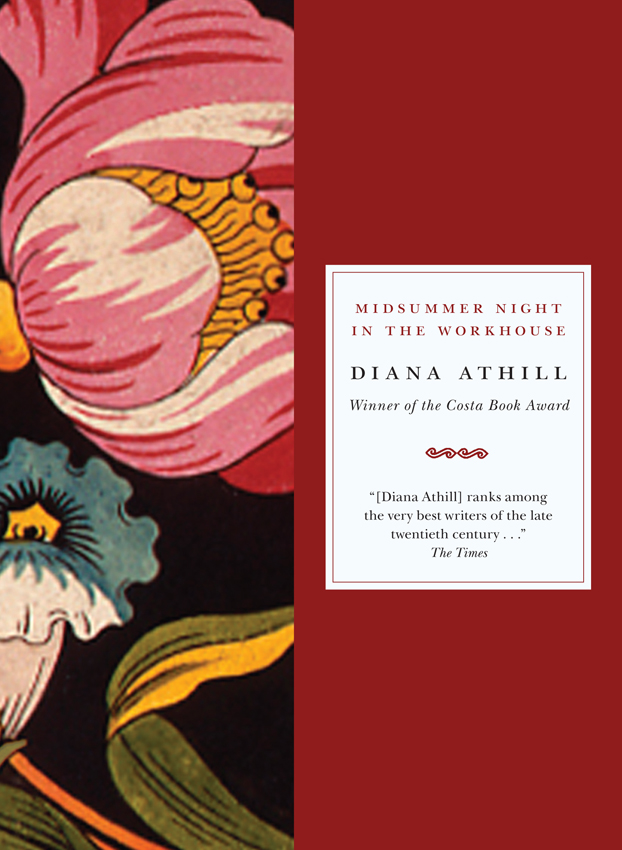MIDSUMMER NIGHT IN THE
WORKHOUSE
by
DIANA ATHILL

with a new preface by
THE AUTHOR

Copyright 2011 Diana Athill
All rights reserved. No part of this publication may be reproduced or transmitted in any form or by any means, electronic or mechanical, including photocopying, recording, or any information storage and retrieval system, without permission in writing from the publisher.
Distribution of this electronic edition via the Internet or any other means without the permission of the publisher is illegal. Please do not participate in electronic piracy of copyrighted material; purchase only authorized electronic editions. We appreciate your support of the authors rights.
This edition published in 2011 by
House of Anansi Press Inc.
110 Spadina Avenue, Suite 801
Toronto, ON, M5V 2K4
Tel. 416-363-4343
Fax 416-363-1017
www.anansi.ca
LIBRARY AND ARCHIVES CANADA CATALOGUING IN PUBLICATION
Athill, Diana
Midsummer night in the workhouse / Diana Athill.
Short stories.
eISBN 978-1-77089-064-0
I. Title.
PR6051.T43M54 2011 823'.914 C2011-903976-1
Library of Congress Control Number: 2011929923
Cover design: Alysia Shewchuk
Cover art: V&A Images

We acknowledge for their financial support of our publishing program the Canada Council for the Arts, the Ontario Arts Council, and the Government of Canada through the Canada Book Fund.
PREFACE

I can remember in detail being hit by my first story one January morning in 1958. Until that moment I had been hand-maiden, as editor, to other peoples writing, without ever dreaming of myself as a writer. Then, at nine oclock one sunny morning, I was taking my Pekinese across the Outer Circle of Regents Park when a car pulled up and its driver beckoned. I thought he was going to ask the way somewhere, but what he said was: I am Mustafa Ali from Istanbul will you come and have coffee with me? At nine in the morning what an optimist! I thought as I went on my way, laughing; and how odd that someone who looked so very like a man Id once known, a diamond merchant from Cape Town called Marcel, should behave in such a Marcellish way. And I began to remember Marcel.
All through that day Marcel kept popping up in my head, and with him came an oddly gleeful sensation of energy. When I got home from the office I thought: I know what Im going to write a story about him, and down I sat at my typewriter. Soon, however, it became obvious that a story about Marcel would be have to be set in the diamond trade, about which I knew too little, so that idea was no good... but the energy sensation was still strongly there. And then, suddenly, another man from the past loomed up, and I knew for certain that he was the one, and that I was going to get him down exactly as he was. Which I did, and the story is An Unavoidable Delay.
As soon as that story was finished, another one began, and by the end of the year I had written nine. I did not think about them in advance: a feeling would brew up, a first sentence would occur to me, and then the story would come, as though it had been there all the time. Sometimes it would turn into work halfway through and I would have to cast about for the conclusion to which the story must be brought, but more often it finished itself. Some of them connected very closely with my own experience, some of them, to my astonishment, depended on it so slightly that they might almost have been invented (the invented ones were the ones of which I felt most proud, but, with one exception, the others were better).
Although the first story, An Unavoidable Delay, was excit- ing to write, it was not to be my thunder-clap one. That role was to be played by the third of the nine I wrote in quick succession before coming to the end of them. At the start of 1958, the Observer announced a prize to be given for a story called The Return, 3000 words long. My third story was to be called something else, but The Return would fit it fairly well. It was a hundred words too long, but one of the things editing had taught me is that you can always cut, so chop-chop, change the title, and off it went under the required pseudonym for which I chose Mister What, having just won a fiver on a horse of that name in the Grand National. That story won First Prize.
This would have been stunning however it had happened, and was made almost unbearably blissful by the fact that in the eight months between submitting it and hearing the news I had forgotten all about it, and that when the prize (500, big money in those days) was handed over, they told me there had been 2000 entries.
You do not look up because you know that you cannot climb the tree. You have forgotten, by now, that there is fruit hidden among its leaves. Then, suddenly, without a puff of wind, a great velvety peach falls plump into your hand. It happens to other people, perhaps; it never happens to oneself... I am still licking peach juice off my fingers.... Bury me, dear friends, with a copy of the Observer folded under my head, for it was the Observer s prize that woke me up to the fact that I could write and had become happy.
In Andr Deutsch Ltd, our publishing firm, the belief that short stories by unknown writers were publishing poison was so deeply entrenched that I never thought of offering my stories to a British publisher. Some of them did get into magazines, and into an anthology, but the best thing that happened to them was that a dear man called Ken, a director of Doubledays in New York whose surname has been lost through a hole in my geriatric head, fell in love with them. I assumed that his colleagues allowed Ken a folly every now and then, and that publishing my stories was one of them: certainly they never earned their very modest advance. They caused no stir (even that prize seemed to be noticed by very few people apart from my friends) so seeing them here, charmingly presented by Persephone, amazes as much as it delights me.
Do they deserve this honour? Reading them now I enjoy them, but that may well be because they recall the special flavour of the thrill you experience when first you make things happen with words on paper: the discovery that I could write changed my life for the better in a very profound way, so they mean a great deal to me. How I hope they will give pleasure to those who meet them for the first time in their new and elegant dress.
Diana Athill
Highgate, 2010
THE REAL THING

I went to the dance with Thomas Toofat. Its Toogood really, but he is too fat, with frizzy hair and flat feet. We never meant to let him know we call him that, but the week before, at the Turners picnic, Sally said without thinking, And this is Thomas Toofat.... Oh, it was utterly withering.
On the night of the dance, no sooner had he come than he said might he go upstairs to wash his hands he would. My father is always talking about putting in a lavatory down- stairs and I shall die if he doesnt were the only people without one but Im sure he never will. Sally and Richard had arrived first and we were standing about in the drawing- room, and I began to wish it wasnt happening, it was such a let-down after the bliss of getting dressed. But when old Toofat came back into the room it got better again because he looked better than usual in his dinner jacket (his own, not his fathers). And at least he is old enough to drive a car.


